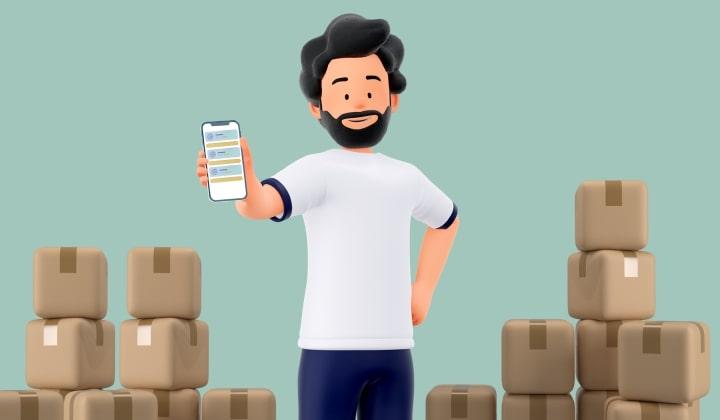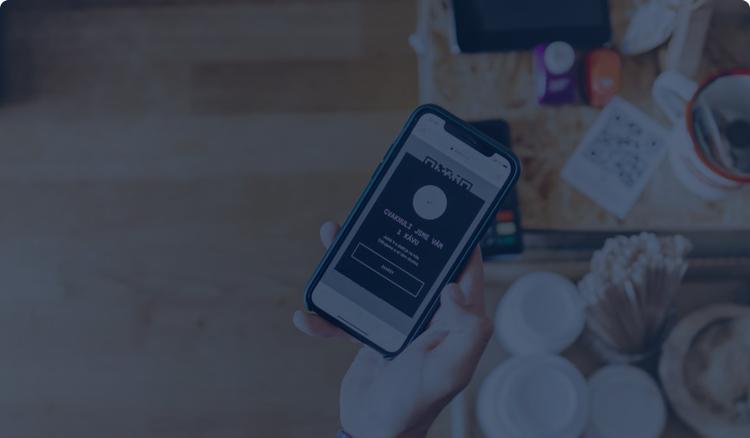Today’s retailers’ main concern is satisfying the needs of their customers and providing them with the best shopping experience. Drawing new customers and retaining the returning ones surely is retailers’ top priority. To achieve such a result, an entrepreneur must thoroughly manage business processes and be scrupulous about delivering quality services to their customers.
To sustain competition on always growing retail market, a store should move its occasional customers to the category of regular ones. Most businesses stay afloat thanks to a client base earned with sweat and blood. The idea that runs through most of our articles is that providing high-level services alone can be not enough. A founder should always consider other possibilities to scale and manage their retail store. Thus, retail management systems will be of much help.
What Is Retail Management System?
By retail management, the process for increasing sales, brand awareness, and customer satisfaction by means of improving communication with customers and services provided is meant. The “system” addition outlines the automation of these processes, representing the general trend in retail and other industries.
The retail management systems work as follows. Comprehensive research of the entire retail procedure is conducted, from analyzing the process for product manufacturing and distribution to gathering feedback from visitors. To guarantee the customers’ maximum satisfaction and the easiest possible shopping, these systems help save time and locate the goods with minimum effort from your side. To achieve this, retail management systems take a number of steps and use some features described below.
Knowing what is retail management system, you can now decide whether you need one or not. Spoiler: you probably do.
The Reasons of Adopting Retail Management System are:
• Thanks to managing your store, you can keep it in order and organize it in a way that you are always aware of what is in stock. If a customer comes for a certain product, you can answer any of their questions immediately.
• Retail management systems allow forming groups of items based on the potential consumer, considering their gender, age, and the demand for a specific product, i.e., the frequency of purchasing it.
• You can access automated statistics of products’ sales, which helps decide on further suppliers. Assigning individual SKUs to every product unit facilitates the identification of these items and tracking them inside and outside the warehouse. Video surveillance (CCTV) and marking items with labels will come in handy as well.
Ready to streamline your retail operations? contact us today!
Contact usWhat to Consider when Choosing a Retail Management System
As we know, a retail management system is a bunch of features to facilitate running your business by making customers’ experience as easy and smooth as possible.
Most RMS comprise some or most of the following features:
- Point of sale (PoS), i.e., the spot for making payments for your goods and services. This can be cloud-based PoS, in-store, or mobile
- Gathering customers’ feedback to improve the quality of services • Sales and order workflow
- Control over purchasing and receiving of goods
- Forecasting
- Inventory management (see top 6 inventory management systems here)
- Staff and vendor management, an instrument that allows to assign tasks to employees, manage their accounts, and much more
- Analytics and reporting
- Rental management
- Shipping management
- Financial management / Accounting
- Website
- Admin panel / Dashboard
Moreover, a software solution for managing a retail business should support multiple platforms for maximum flexibility and accessibility.
Such a variety of features results in a wide range of retail management systems emerging on the market. It varies in the set of functions and price as much as stores vary in size and revenue. That’s why one should be very attentive when choosing a solution to help manage their business. Opt for one that fits your needs with no extra functionality. The latter will not only be useless, but also add cost. Thus, for maximum profit yet saving, choose one designed specifically for your type of retail.
How much does it cost to develop an app?
Read articleWho Can Use the Retail Management System?
Anyone involved in retail will find retail management software useful:
• Employees. The PoS system serves them for processing and closing in-store transactions, checking inventory, and keeping track of their workings hours.
• Managers. With the help of retail management system, these workers can manage employees’ working hours and see trends in sales for internal procurement.
• Owners. For them, retail management systems are indispensable tools for gathering statistics and deciding on the vector of the retail business’s further development. And since RMS take upon a great deal of operations, owners can finally focus more on their business goals.
• Marketers. Seeing popular products helps marketing managers in creating advertising campaigns and working out marketing strategy.
• Merchandisers. Information on past purchases received thanks to retail systems helps merchandisers draw requisition notes.
• Vendors. Retail management systems offer vendors insights into warehouse fulfillment and general business trends.
DON'T KNOW WHERE TO START? DON'T HESITATETO GET A FREE CONSULTATION!?
Contact usBest Retail Management Systems
There is a huge number of retail management systems available on the market, so one does not know where to look first when the question of choosing an automated assistant comes up. Like with anything else, study the reviews with a system’s pros and cons highlighted. For obvious reasons, we recommend giving priority to non-sponsored tops and listings of retail management systems software.
Some websites that give lists of most used or more highly rated software have customizable filters for you to specify the set of desired functions. Additionally, some of them, such as GetApp, allow adding the selected items to comparison so that you can see their functionality side by side.
According to the TrustRadius website, top retail management software solutions with most reviews are Brightpearl and Epicor Retail Solutions. These have mostly positive reviews from their clients, mid-size (1–10, 11–50 employees) retailers.
G2, a software solutions aggregator that helps entrepreneurs choose an instrument to improve their business, not only allows comparing various business tools, but also groups them into categories: highest rated, easiest to use, with a free version available. Follow the G2’s up-to-date list of top retail management systems to learn more.
Also, pay attention to NetSuite mentioned earlier in our Best Inventory Management Software for E-Commerce article. This is more than an instrument for inventory management: it gives control over all the retail business procedures, from accounting to warehouse fulfillment.
Conclusion
Global automation inevitably affects business. It may seem disturbing, but there is nothing bad about it. Moreover, the introduction of automated assistants excepts the human factor from business processes. Thus, fewer errors occur. Let’s be honest, people tend to get tired and inattentive, especially by the end of the working day. So having a helping hand in the form of a retail management system is a great idea for retailers.
Picture this: all the details about your business, from supply to accounting, are in one place and well-balanced between one another. All left to do is to decide on the best retail management system for you. Why not give it a try?



.jpg&w=750&q=75)